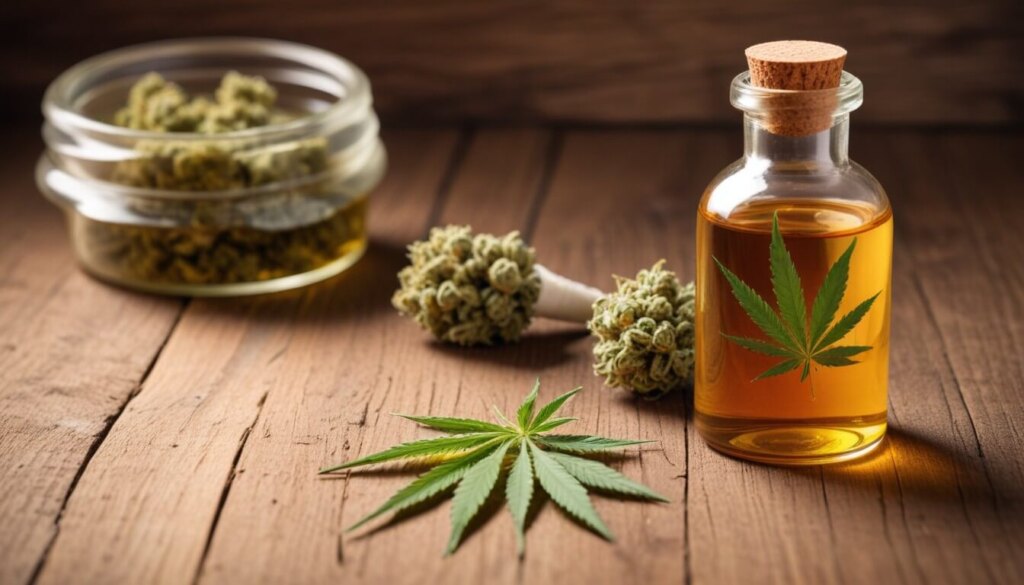One of the main unique features of cannabidiol (CBD) from the hemp plant is that it is not a psychoactive substance – it does not cause the psychoactive effect that is normally produced by cannabis.
As CBD’s recognition of its medicinal possibilities is becoming apparent, Canadian regulations become the cornerstone of its secure and efficient use. The regulations are intended to discourage misuse to make CBD products safe and accessible for consumers.
Cannabis Act and CBD Regulation in Canada
The Cannabis Act, which was put into force on October 17th, 2018, dictates the rules relating to phytocannabinoid products, including CBD production, and consumption. While these rules are in place to govern the case of both medicinal uses as well as recreational uses of CBD, each shall be treated individually per the law.
Health Canada oversees the manufacturing of cannabis products and receives from such plants through their safe production process in a controlled environment. It is the responsibility of the federal government to sell these products and monitor the recreational market.
Under the Cannabis Act, CBD and CBD products like oils and flowers are regulated as other cannabis products and they are under the same control. This, in turn, implies you can also buy CBD flower buds in Canada and that the production of them is admissible where the manufacturer owns a legally approved processing license only.
Secondly, any type of CBD product may not be sold to minors. This restriction is subject to different minimum ages that differ from province to province and usually means that if a person is 18 years old or older, then only they are allowed to buy CBD products.
Only habitually provincial and territorial retailers to have licenses are allowed to sell CBD products legally. In addition, the medical CBD outlets can be considered as one of the potential sources for sales as well.
This regulation makes sense enough to control how CBD gets distributed and is used for the public’s health, state laws, and the Canadian cannabis market integrity.
Health Canada’s Role in CBD Regulation
Health Canada’s regulatory authority has a significant impact on the whole CBD production chain in Canada, including monitoring the processes of production, distribution, and sale of CBD products to maintain public safety and respect for the rules and regulations stipulated.
As the federal authority responsible for public health, Health Canada’s involvement in CBD regulation encompasses several key areas:
Licensing and Regulation
Health Canada is mandated to oversee the licensing procedures for all those firms who are looking forward to getting into business CBD production, distribution, and commerce. Among these are giving licenses for all types of cannabis inclusive of the cultivation of Cannabis plants, production of cannabis products, or cannabis retailing.
Product Safety and Quality
Canada, through Health Canada, has laid down adamant standards ensuring the safety and quality of CBD products on the shelf through testing, labeling, packaging, and storage requirements. CBD products come through a set of demanding analyses to verify whether they fulfill preset criteria for strength, purity, and stability.
Public Health Education
Under the supervision of Health Canada, the public gets to learn about various issues concerning the consumption including responsible safe use of CBD and other cannabis products. For instance, it organizes campaigns aimed at increasing consumer recognition of both the possible risks associated with CBD usage as well as the health benefits that customers can derive from it.

Requirements for CBD Products Under Canadian Law
Here are the specific regulatory requirements for CBD in Canada, based on Health Canada’s guidelines:
Licensing Requirements
For the cultivation of cannabis, as well as the production and sale of CBD-containing products, licenses are to be obtained. CBD can be obtained from hemp and other varieties of cannabis, but anyone involved with processing will require a processing license stipulated in the Cannabis Regulations.
Age Restrictions
Only adults are allowed to buy CBD products. The minimum ages of purchase are different in each province and territory but most of them are 18 or 19 years old. Retailers have a legal obligation to follow the age restrictions for selling CBD products.
Product Manufacturing and Quality Control
Health Canada stipulates that all cannabis products with CBD are produced in a strictly controlled environment to maintain the safety and quality of the end product. This regulation plays a significant role in ensuring uniformity of the products available in the market.
Distribution and Retail
The distribution and selling of CBD products by provinces and territories is undertaken through licensed outlets. This is both a recreational and medicinal product. Medical CBD is sold exclusively through medical dispensaries authorized to do so.
Regulated Sales Channels
CBD products should be sold through authorized cannabis retailers or by licensed producers to consumers for medical purposes. The unlicensed sale of CBD in an unregulated market is a crime.
Recent Developments and Future Outlook for CBD Regulation
While the cannabis regulations were yet provisionally in place throughout the COVID-19 pandemic, the sector, especially the CBD product industries, grew extremely fast thus creating a boom in the sector.
In today’s world where people are more inclined to go-to-nature alternatives for their ailments such as pain, poor sleep, and stress, CBD has become a widely used option. This change can be recognized by the fact that Gen Z prefers CBD alternatives to alcohol demonstrating a broader cultural acceptance of CBD as a part of health culture, not a fashion. This is another good sign.
Besides all, the development of CBD regulation will largely depend on medical aspects, scientific investigations, and changing consumption patterns. Albeit at the forefront of this health revolution, whereas there is an increasing awareness of CBD’s potential benefits and a regulatory framework is evolving, the industry demonstrates its readiness to answer the broad spectrum of health and wellness needs.





